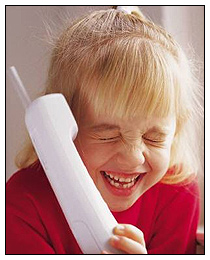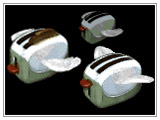 A fellow resident of New England, Boston Gal asked an interesting question a few days ago on her Open Wallet blog, “Can you really separate money from emotions?”
A fellow resident of New England, Boston Gal asked an interesting question a few days ago on her Open Wallet blog, “Can you really separate money from emotions?”
Here’s an excerpt:
I have always been the type of person who tries to see things from another’s point of view. Perhaps this is why I tend to tip more than is warranted. It could also be why I seem to do okay as a landlord. I think about what my tenant would want and try to provide that (within reason). Empathy and finances seems to work for me.
When I was younger fear was a great motivator. Fear of never being able to afford to move out of my Mother’s house prompted me to buy my condo at auction. Fear that I would not be able to afford said condo lead me to work harder and eventually change jobs and get onto a better career path.
Once I felt confident in my abilities to work and support myself, the fear went away to be replaced by worry. Worry that I might not have enough saved to handle periods of unemployment. Worry about dealing with unexpected expenses. This prompted me to get serious about funding an emergency account. It also helped me keep my spending in check and start living on less than I earn.
Eventually the worry was replaced by satisfaction. I had money in the bank, consumer debt was eliminated, and retirement savings were gaining steam. Money was no longer tied to negative motivational emotions, now it was positive. Adjusting to that took a bit of time.
She’s a few years ahead of me in her quest for financial freedom, of that I’m jealous…
I haven’t reached the satisfaction level just yet. I’m in the worry stage right now, but just like she described, fear was/is probably my biggest motivator too. I do worry about what I’d do if I suddenly joined the unemployed. I also worry about how much I’ll have to retire on. I’m afraid of a dismal future.
I can’t claim to have ever gotten serious about funding an emergency fund. You see people on personal finance blogs and message boards rhyming off left and right that you should have 6 months worth of expenses saved in an emergency fund. I don’t know about you, but 6 months worth of expenses for me is a ridiculously obscene high number to have sitting in a low rate savings account.
I also think that, to a degree, even when I was living paycheck to paycheck (which I sort of still am), I always kept between a $1000-$1500 buffer in my checking account — just in case. I guess that was my equivalent of an emergency fund.
What I got serious about was controlling my current spending, analyzing my past spending, and then weaning myself off of the credit cards.
All the bunk that Clark Howard spews is true. The balances only go down when you stop using them. I chopped three of them up, and while I didn’t put one in a block of ice in the future (I was never that crazy addicted to them), I started using one for gas only.
I didn’t attack the balances I had Dave Ramsey style, though I have to admit I did attack some of the lower rate balances first just because I knew I could get rid of them quickly. It’s crazy how fast credit card debt can disappear when you stop charging like $800+ per month. Suddenly, I had money in my checking account — but I kept sending it off to the credit card companies backing myself up against my buffer. That started in 2003.
Now, hear I am in 2007 with essentially less than $500 remaining in personal credit card debt. The fear of not being able to dig out (of ANY hole) is subsiding. Now it’s just a few months off, I hope, and I’ll hit the “satisfaction” point. I’m excited.
Back to the point, “Can you really separate money from emotions?” For me… no. I spend with my head, not my heart. But there is still an emotional connection. Even though I still feel I’m in debt (minus the 401k and cars, I am!), I still get a good vibe just from the direction I’m heading and have been heading for 4+ years.
Money can’t “buy” happiness really, but damn, once you figure it out, it makes you feel a lot better all over. Even when you’re still in the hole.













 So, this morning in the shower I was remembering back in the 1980’s when crank calling was still considered “innocent” fun. All the cool kids were doing it.
So, this morning in the shower I was remembering back in the 1980’s when crank calling was still considered “innocent” fun. All the cool kids were doing it.


 Like Andre Agassi once pitched for Canon Rebel cameras, image truly is everything.Â
Like Andre Agassi once pitched for Canon Rebel cameras, image truly is everything. 








